Perceptions of regulation
In the context of a particularly challenging year for the NHS, we asked trust leaders how far regulators understood the pressures they were facing. The results are very similar to last year, with CQC in particular, felt to have insufficient understanding of the broader pressures facing NHS providers and staff.
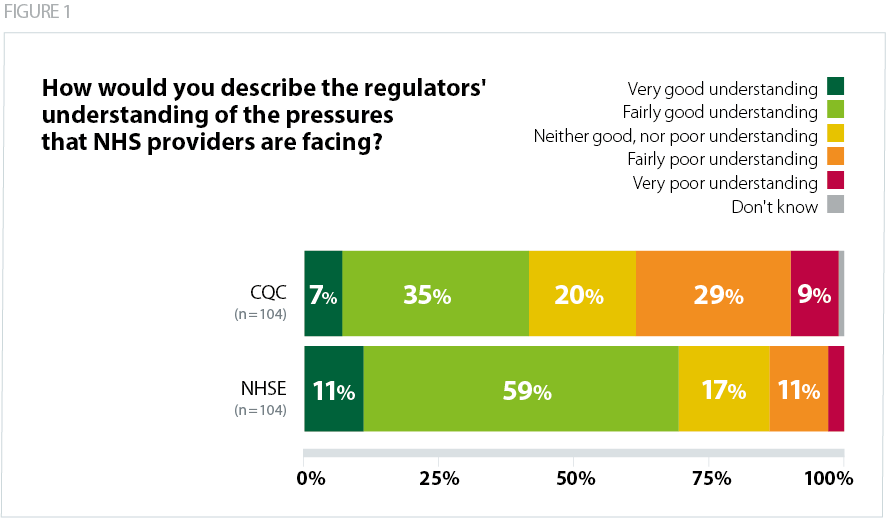
Care Quality Commission
42% of respondents thought that CQC's understanding of the pressures was fairly good (35%) or very good (7%), while 38% said it was fairly poor (29%) or very poor (9%). These results were a slight improvement on last year (41% - good; 43% - poor), but decidedly worse than in 2019 and 2018, when 52% and 62% respectively, described the regulator's understanding of the pressures facing trusts as good.
Responses varied by trust type:
- Community trusts were the most likely to say that CQC had a good understanding of the pressures that NHS providers are facing.
- In contrast to last year's results, respondents from ambulance trusts were most likely to say that CQC had a poor understanding of the pressures (67%) – the same percentage said that CQC's understanding was good in 2022.
- Perceptions in the mental health and learning disability sector have improved: 64% thought CQC had a very poor or fairly poor understanding of the pressures they faced last year; this year only 28% held that view.
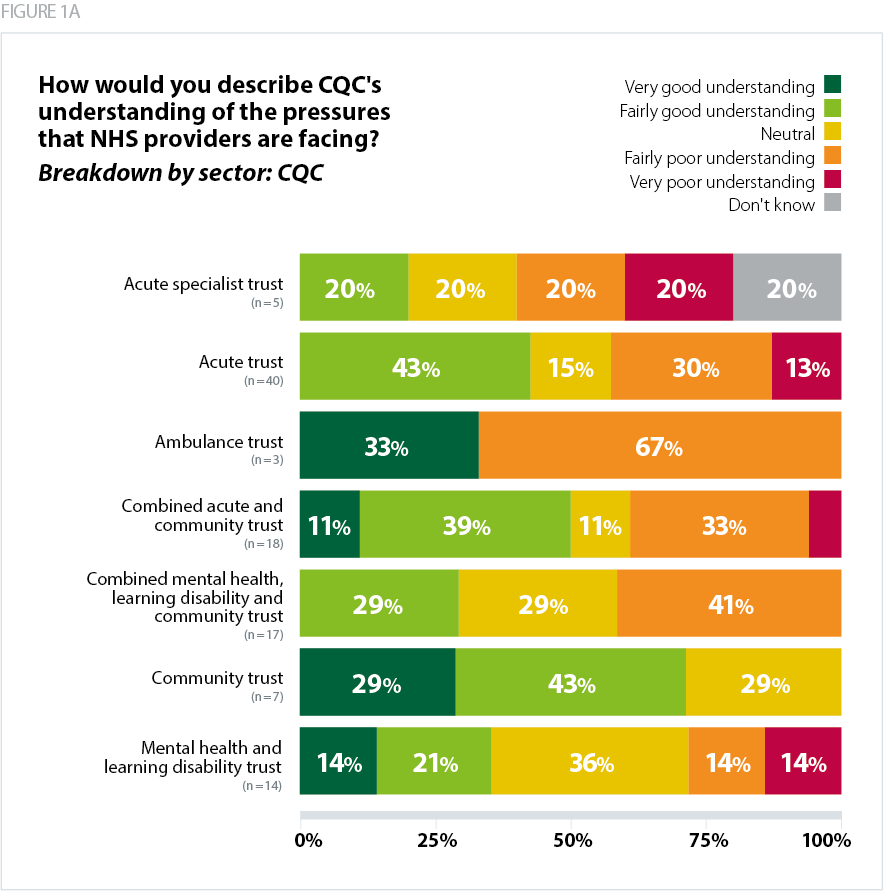
NHS England
Seven in 10 (70%) respondents said NHSE had a very good (11%) or fairly good (59%) understanding of the pressures that NHS providers are facing. This is slightly higher than last year's findings (68%), but lower than the results from 2019 (74%) and 2018 (75%).
Trust leaders from combined mental health/learning disability trusts answered most favourably, while acute specialist trusts were the most likely to say that NHSE had a poor understanding.
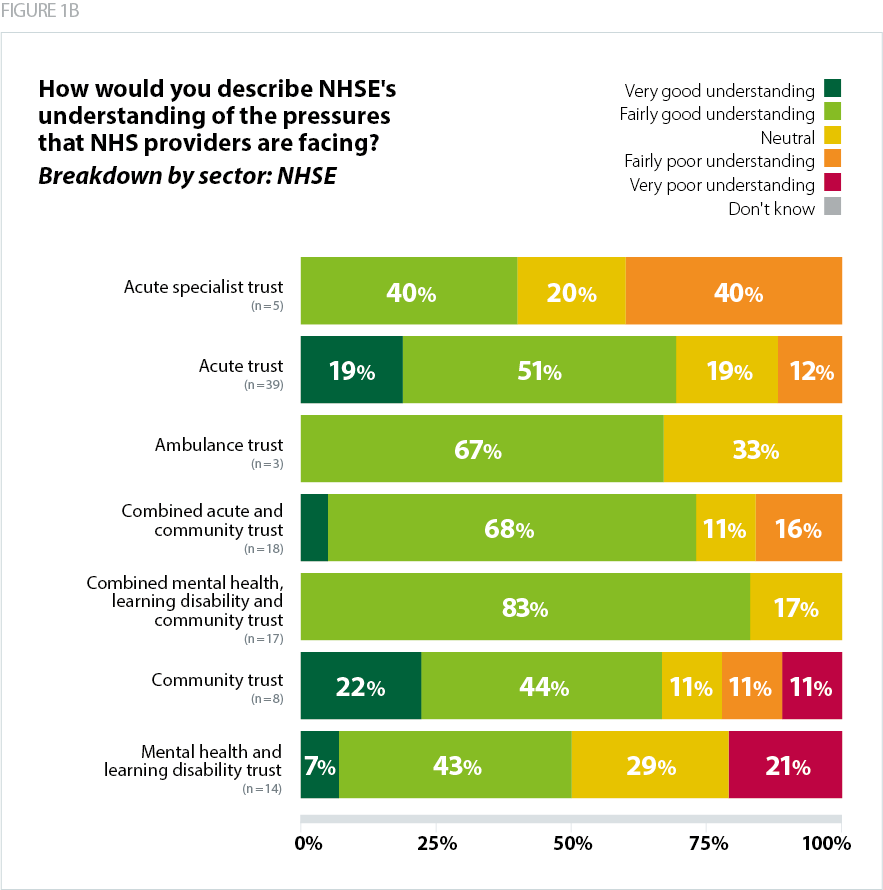
Trusts' comments suggest that, although they feel colleagues in the regulators understand the pressures they face, regulatory approaches have not adapted to reflect this, and sometimes burden increases when times are hardest.
"While I think that national bodies are aware of the pressures facing the frontline, they appear to be either unable or unwilling to tailor their requests for information appropriately. I do consider, however, that CQC locally appears more willing to try."
The perceived burden of regulation
Overall, trusts continue to perceive an increasing regulatory burden and increasing ad hoc requests from the regulators.
Just over half (52%) of respondents said the regulatory burden on their trust had increased, compared to 42% saying it had stayed the same. Only 4% said the burden had decreased over the past year.
Responses varied by trust type. All (100%) respondents from acute specialist trusts and ambulance trusts said that regulatory burden on their trust had increased over the past 12 months, whereas combined mental health/learning disability/community trusts were the least likely to report an increased regulatory burden.
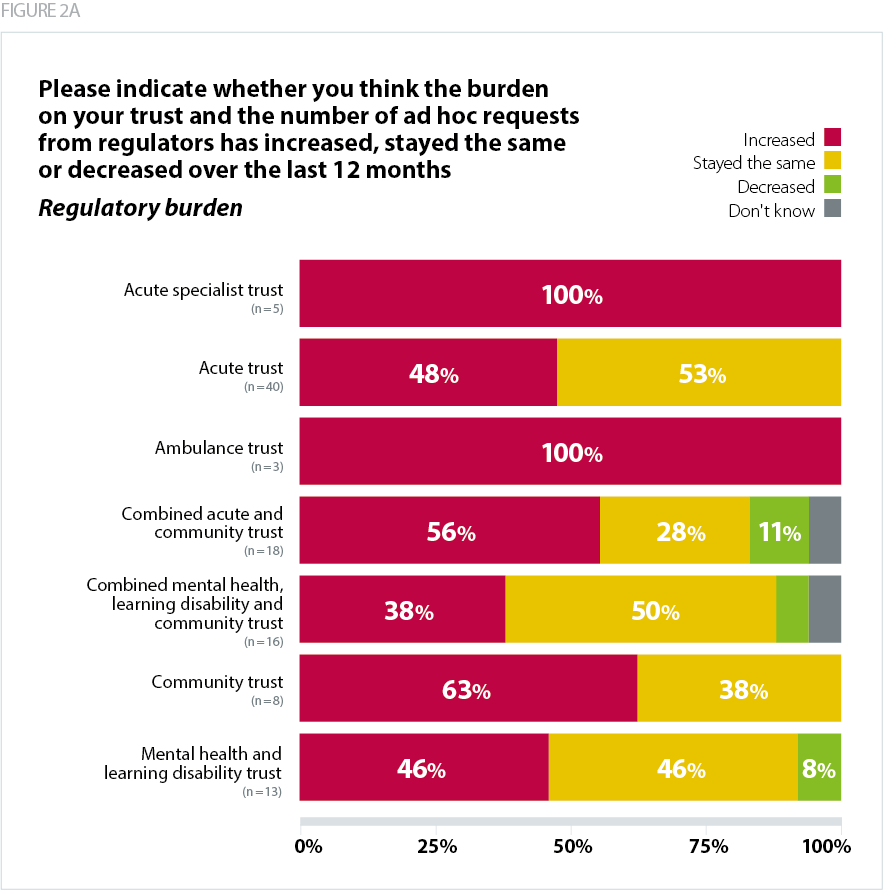
Just under six in 10 respondents (59%) thought that ad hoc requests from regulators had increased over the past 12 months, a third (33%) said they had stayed the same, and only 4% said that they had decreased.
Similar to results on regulatory burden, ambulance trusts were the most likely to say that ad hoc requests had increased – all respondents from this sector (100%) said that was the case.
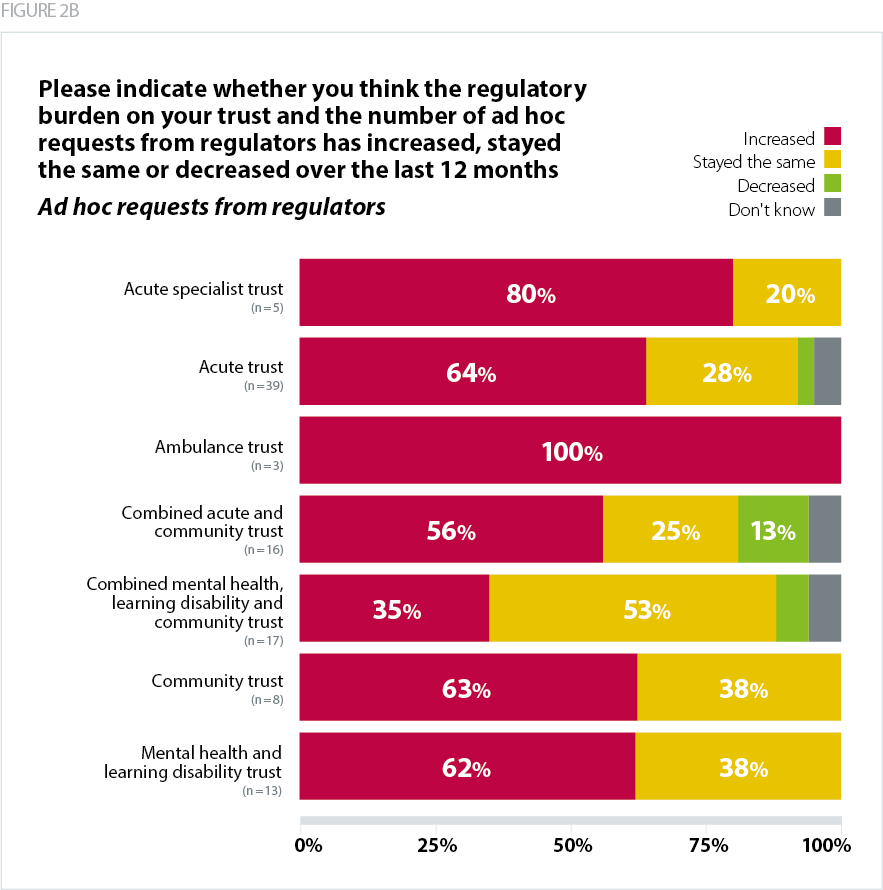
We also asked trusts whether regulatory reporting requirements were proportionate to the level of risk they manage. Responses to this question were almost evenly split, with 49% reporting that the requirements were proportionate, and 50% saying they were not.
In their comments, trust leaders said that requests from regulators were often demanding and burdensome and that it would be helpful if ad hoc requests were reduced. While some reported a decrease in reporting requirements, many felt that pressure was rising and additional burden was brought in during times of extreme pressure.
"Regulation and oversight steps up in times of heightened pressure which applies further burden, intensity and pressure to providers, rather than being supportive or scaled back when pressure is greater."
"The increased reporting requirements do not seem to take into account the current pressures that NHS trusts are facing."
"Whilst I appreciate that Covid-19 was exceptional, the regulation lite environment was refreshing and I was hopeful that we would think before reinstating things, sadly it appears not. ."
Respondents felt disappointed by a continued regulatory focus on inputs and targets, rather than on outcomes and improvement. They tended to feel micro-managed on operational performance by regulators, with a lack of recognition of the cumulative impact of pressures created by austerity, demographic change and industrial action, in addition to the ongoing impact of Covid-19 and long Covid. When reflecting on the role of the regulators, trust representatives felt subject to unrealistic requirements in a system which diverted efforts from patient care and sometimes prioritised financial scrutiny over care quality.
"Needs to feel more like an improvement partnership within a just culture framework- not being judged for non-deliverable performance targets."
"I accept that the level is right but I am concerned that the focus is skewed - so that the scrutiny is all about finance and less about safety and quality"
"While I think the reporting is proportionate to the risk we carry, I do not think what they ask for suggests they understand the risk. Most of what is asked is irrelevant to risk."
Respondents also commented on the lack of coordination between regulators, meaning that the same information was requested multiple times, leading to a significant increase in the time and resource burden. This has been a common theme over the years.
"It would be helpful if there was a degree of co-ordination amongst regulators - a recent example is that we have had several regulatory visits from different bodies on the same matter - where the burden on time and resource could have been reduced by sharing the outcome."
The sentiment in the comments above is reflected in responses about specific aspects of regulators' approach (see figure 3 below).
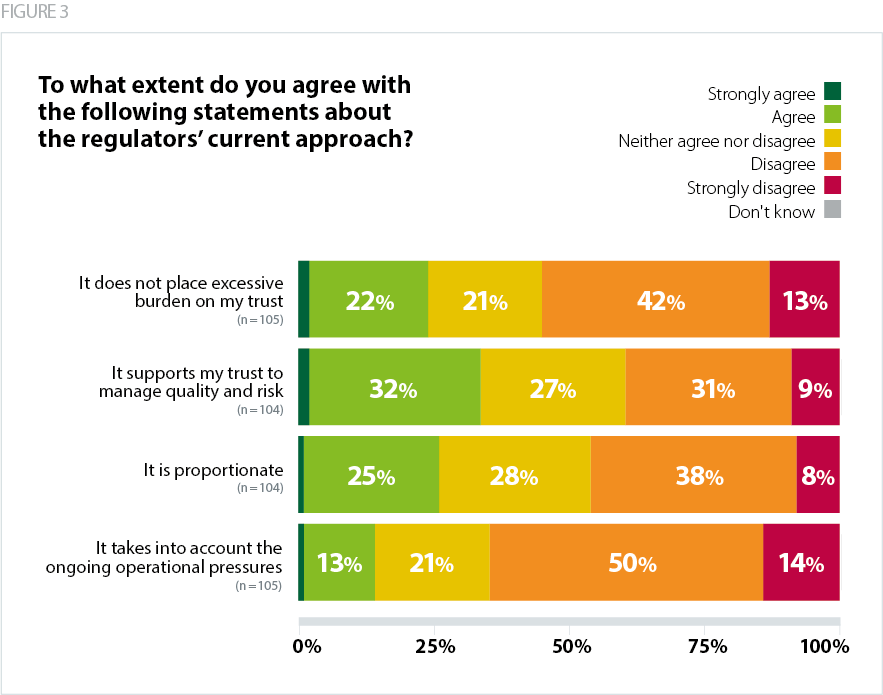
- Almost two-thirds (64%) disagreed (50%) or strongly disagreed (14%) that regulators took ongoing operational pressures into account, with only 14% agreeing.
- Well over half of respondents (55%) disagreed with the statement that regulators' approach did not place excessive burden on their trust, and almost half of respondents (46%) thought regulators' approach was not proportionate.
- Two-fifths (40%) of respondents disagreed (31%) or strongly disagreed (9%) that regulators' approach supported their trust to manage quality and risk.
- Responses varied by trust type for the different statements. The proportion of those who disagreed was highest among ambulance and acute specialist trusts.